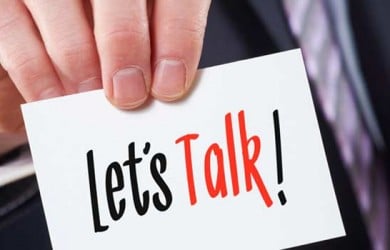10 Couples Therapy Techniques for Better Communication

Unlock Daily 30-Sec Tips for a Happier Relationship
👉 Subscribe FREEKey Takeaways
Marriage.com AI Quick Summary
Communication isn’t always something we give a lot of thought to. You get up, you say good morning to your spouse, you go to work and talk to colleagues, and you chat with your spouse again at dinner time, but how often do you analyze those communications?
Good communication leaves both parties feeling heard and validated, and their concerns are valued by the other person. It’s all too easy to skip over good communication because you’re busy or stressed or simply because you haven’t given much thought to how you communicate with each other.
For many couples, visiting a therapist is a good way to work through some relationship communication issues with the support of a professional who can guide them through the process. Perhaps that’s something you and your partner would benefit from.
However, you don’t have to need therapy to benefit from some of the techniques used during the couples’ sessions. Try out some couples therapy techniques for communication to be used at home, and you might just be surprised by how much your communication improves.
What is couples therapy?
Couples therapy, also known as marriage counseling or couples counseling, is a form of therapy designed to help couples address and resolve conflicts within their relationship.
A trained therapist works with the couple to identify underlying issues, improve communication, and develop strategies to improve their relationship. Couples therapy can be beneficial for couples at any stage of their relationship, from dating to marriage.
10 best couples therapy techniques to improve communication
Couples therapy is always a feasible option for many couples. So, here are some easy and effective couples therapy techniques for communication you can use to improve your relationship today.
1. Make a safe space for talking about feelings
Couples therapy techniques for communication guide you to build a safe environment to talk.
Sometimes, the hardest thing about talking through feelings is making a safe space for them. If you’re both feeling tense about a subject or it’s sparked fights in the past, it can be hard to know how to approach it.
You might start by asking your partner, “Do you feel comfortable talking about this?” or “How can I make this discussion easier for you?” Ask them for what you need to feel more comfortable, too.
When you start from a position of acknowledging each other’s needs, it sets you up for a calmer and more respectful discussion.
2. Practice active listening
Active listening is a valuable life skill as well as one of the couples therapy techniques for communication, but also one that is so often overlooked.
Active listening means really taking on board what the other person is saying without getting distracted or caught up in your own train of thought.
One simple active listening technique you can try with your partner today is learning to mirror the other’s words.
Instead of just nodding along or trying to interject when your partner is speaking, let them finish and then repeat what they said in your own words. This is a great way to make sure you’re truly understanding each other.
“I” statements are a wonderful communication tool. When you start a statement with “you,” your partner is automatically put on the defensive. “You” sounds accusing, and people who feel accused are unlikely to be open to honest, heartfelt discussions. “I” statements reduce fights and facilitate real talks.
For example, if you want more support with the chores and you start with “you never do any chores,” your partner will get defensive and fire shots back.
On the other hand, if you start with, “I feel stressed by the amount I have to do right now and would really appreciate some help with the chores,” you open the way for a discussion.
“I” statements also create space for you to really focus on and express your feelings and be heard by your partner.
You can do the same for them, in turn, hearing their feelings and concerns rather than hearing accusations and going on the defensive. It’s useful among couples therapy techniques for communication.
3. Use positive language
Couples therapy techniques for communication always involve conversing with a positive approach.
Using positive language follows naturally from making “I” statements. Using positive language doesn’t mean papering over how you really feel or trying to smooth over a situation.
However, it does mean being mindful of the words you choose to express your feelings and the way those words might affect your spouse.
For example, if you find yourself nagging your partner a lot, you might want to start focusing on the positive. Find things you love about them. Look for things they do that you appreciate, and tell them about those things.
Make requests rather than give orders. Always ask yourself how you would feel if you were on the receiving end of your communication with your partner. This is how you can improve communication through couples therapy.
4. Honor each other’s changes
We all change as we go through life, but it’s amazing how many people expect their spouses not to change. Some of us even get quite angry and frustrated with them when they do.
However, as the couples therapy techniques for communication teach us, marriage is all about honoring and respecting each other as the years pass by, and that includes each other’s changes.
Instead of mourning who your partner used to be or wishing they could be the same person you first fell in love with, look for ways to honor and respect who they are right now.
See, getting to know each other anew as you change is an adventure you are taking together. Take the time to ask each other about your thoughts, feelings, dreams, and goals in life, and learn more about who your spouse is right now.
5. Nonverbal communication
Nonverbal communication, such as body language and tone of voice, can have a significant impact on how we communicate with our partners. While following the couples therapy techniques for communication, it’s important to be mindful of what we convey to the other person.
Being mindful of nonverbal cues can help improve communication by sending positive signals to your partner. For example, maintaining eye contact, using an open posture, and speaking in a calm tone can all help improve communication.
6. Timing
The timing of conversations can be just as important as what is said. Choosing the right time and place for difficult conversations can help improve communication and prevent misunderstandings. For example, bringing up a sensitive topic when your partner is stressed or distracted may not be the best time.
7. Validation
Communication therapy for couples preaches validation.
Validation involves acknowledging your partner’s feelings and perspective, even if you don’t agree with them. This technique can help your partner feel heard and understood, which can lead to better communication. For example, you might say, “I can see why you feel that way,” or “I understand where you’re coming from.”
8. Taking a break
Taking quiet time is one of the tested couple counseling techniques.
Sometimes, taking a break from a difficult conversation can help both partners calm down and collect their thoughts. This technique can prevent arguments from escalating and can give both partners time to reflect on their feelings and needs.
9. Active problem-solving
Active problem-solving involves working collaboratively with your partner to find solutions to problems. This technique can help improve communication by fostering a sense of teamwork and shared responsibility.
For example, if you’re struggling with the division of household chores, working together to create a schedule that works for both of you can help alleviate tension and resentment.
Here are some more tips on encouraging teamwork in a relationship:
10. Appreciation
Expressing appreciation for your partner can go a long way in improving communication and strengthening your relationship as part of couple therapy techniques.
Taking the time to acknowledge your partner’s contributions and efforts can help foster feelings of love, respect, and gratitude. For example, thanking your partner for cooking dinner or expressing how much you appreciate their support can help improve communication and create a positive atmosphere.
5 things couples therapy can help your relationship
Couples therapy is an effective way to improve your relationship and help you work through any issues or conflicts. Here are five ways couples therapy can help your relationship:
1. Improve communication
A couples therapist can teach you communication techniques to help you express your feelings and needs in a healthy and constructive way. This can prevent misunderstandings and conflicts and help you connect with your partner on a deeper level.
2. Address underlying issues
Couples therapy can help you identify and address underlying issues that may be causing conflicts in your relationship. By exploring these issues, you can find ways to resolve them and move forward together.
Watch this video by Licensed Therapist Steph Anya to learn some techniques for resolving conflicts in a relationship:
3. Enhance intimacy
A couples therapist can help you and your partner deepen your emotional connection and enhance physical intimacy. By exploring your desires and needs, you can create a more fulfilling and satisfying relationship.
4. Develop problem-solving skills
Couples therapy can teach you problem-solving skills that can be applied to any conflicts or issues that arise in your relationship. These skills can help you work through disagreements in a constructive and effective way.
5. Build a stronger bond
By working through challenges and conflicts together, you and your partner can build a stronger bond and deepen your commitment to each other. Couples therapy can help you rediscover the reasons why you fell in love and strengthen your relationship for the long term.
FAQs
Navigating the complexities of relationships often requires intentional effort and support. Explore these questions to gain insights into the signs that couples therapy might be beneficial, the effectiveness of different therapeutic approaches, and when seeking professional help becomes crucial.
-
What are some signs that couples therapy could help improve our communication?
Recognizing signs like frequent misunderstandings, unresolved conflicts, or emotional distance can indicate that couples therapy may enhance communication. Professional guidance can provide tools to foster understanding and strengthen the relationship.
-
What is the most successful couples therapy?
Different approaches may work better for different couples and issues. It’s important to find a therapist and therapy style that you feel comfortable with, and that addresses your specific needs and goals for your relationship.
You can consider some of the preferred couples therapies available today, including Emotionally Focused Therapy, Cognitive Behavioral Therapy, and The Gottman Method.
-
How does couples therapy improve communication?
Couples therapy enhances communication by providing a safe space for open dialogue. Therapists help identify communication patterns, teach effective listening skills, and address underlying issues, fostering a deeper understanding between partners and promoting healthier interaction.
-
What are the therapeutic communication exercises for couples?
Couples counseling may include active listening, mirroring, and practicing empathy. Couples often engage in structured conversations guided by therapists, focusing on expressing feelings and needs constructively. These exercises aim to break communication barriers and build connections.
-
When should one seek professional help for communication issues?
Seek professional help when communication challenges persist, causing emotional distress or impacting relationship satisfaction. Early intervention can prevent issues from escalating, foster healthier communication patterns, and strengthen the foundation of the relationship.
Building your relationship through communication
So, that’s it! The key to building a successful relationship is through open and honest communication. Whether it’s by actively listening, using non-verbal cues, or just being truthful, effective communication is essential.
While you look for therapy for communication, it’s crucial that you stay present in your relationship and do all you can to build it up. So, keep practicing, and don’t give up. A little effort goes a long way!
 Tips
Tips
Write your tip or submit a video tip
All tips are reviewed before the publishing.
Share this article on
Want to have a happier, healthier marriage?
If you feel disconnected or frustrated about the state of your marriage but want to avoid separation and/or divorce, the marriage.com course meant for married couples is an excellent resource to help you overcome the most challenging aspects of being married.
Recent Articles
Related Quizzes
Unlock Daily 30-Sec Tips for a Happier, Healthier Relationship
👉 Subscribe FREE on YouTube We'd love your feedback!
We'd love your feedback!
 Expert Q&A
Expert Q&A
Ask your question related to this topic & get the support you deserve from experts.



















 Thanks for your feedback!
Thanks for your feedback!